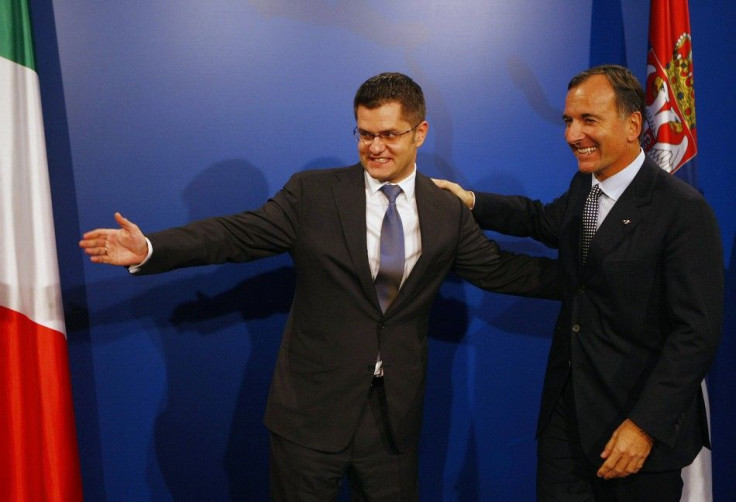Serbia Wins EU Candidacy; Must Win Over Kosovo Next

Serbia has received European Union (EU) candidate status on Wednesday, which is the first step in becoming a member state of the international organization.
We recommend that accession negotiations be opened as soon as Serbia achieves further progress in the one key priority ... the negotiations with Kosovo, EU Enlargement Commissioner Stefan Fule said.
The arrest of former Bosnian Serb army leader Ratko Mladic in May was Serbia's first significant EU application hurdle, but Belgrade's refusal to recognize Kosovo shows that the damage done during the wars in the Balkans in the 1990s has yet to be completely repaired.
I think today's report from the European Commission was extremely positive when it comes to the way the reform process to date in Serbia is viewed, Serbia's Foreign Minister Vuk Jeremi? said Wednesday.
We will continue reform efforts, regardless of the how fast the political decision is made in the European Council, which is made up of 27 countries, Jeremi? added.
Serbia has said that it is committed to finding a compromise with Kosovo, but recent EU-mediated talks between the two counties have continually failed. Serbia still refuses to recognize Kosovo as an independent nation, and border tensions have often resulted in gunfire.
Five current EU member states don't recognize Kosovo -- Cyprus, Greece, Spain, Slovakia and Romania.
At the press conference in Belgrade Wednesday, Italian Foreign Minister Franco Frattini said that Italy is ready to help Serbia in the dialogue needed for it to become an EU member.
The most recent country to go through the EU enlargement process was Croatia, which completed negotiations in June and is on pace to become the bloc's 28th member state.
The Commission has negotiated hard but fair over the last years, applying strict conditionality and making sure that all EU criteria and benchmarks are fulfilled. This firm commitment has paid off: Croatia is now ready to move ahead.
Croatia applied for accession in February 2003.
Once approved for negotiation, Croatia had to meet the Copenhagen Criteria, a set of requirements that all applicant countries must live up to before being allowed membership.
The Copenhagen Criteria state that member nations must insure that stable institutions that guarantee democracy, the rule of law, human rights and respect for and protection of minorities; a functioning market economy; and the ability to assume the obligations of membership, in particular adherence to the objectives of political, economic and monetary union.
The previous enlargement took place in 2007, when Romania and Bulgaria were added to the EU.
The Union also recommended accession talks for Montenegro on Wednesday, a year after the tiny 625,000-person country became a candidate.
© Copyright IBTimes 2024. All rights reserved.











